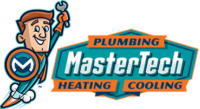
Slab Leak

Picture you’re enjoying a peaceful evening at your home when you hear an ominous dripping sound. You follow the noise to the kitchen, only to find water pooling on your floor. Panic sets in as you realize that something beneath your home’s foundation is causing this mess. Slab Leak Repair in Columbia, MO.
Slab Leak Problems Homeowners Encounter
Homeownership brings its share of joys and challenges, but a slab leak is a problem that no homeowner wants to face. A slab leak occurs when pipes beneath your home’s concrete foundation develop leaks. This silent menace can lead to various issues, from skyrocketing water bills to structural damage to your property.
Common signs of a slab leak include unexplained water pooling or dampness, a sudden drop in water pressure, and the sound of running water when no taps are open. Ignoring these signs can lead to costly repairs and even compromise your home’s stability.
We Are Slab Leak Experts
When it comes to Slab Leak Repair in Columbia, MO, MasterTech Plumbing, Heating and Cooling is your go-to choice. Our commitment to excellence and customer satisfaction sets us apart.
Our Slab Leak Repair Process
At MasterTech, we follow a systematic service process to address slab leaks and prevent further damage:
Trust Our Local Experts
MasterTech Plumbing, Heating and Cooling isn’t just a business; we’re an integral part of the Columbia community. We understand the unique challenges homeowners face in our area and are dedicated to safeguarding your home.
Benefits of Professional Repair
Choosing our slab leak services offers numerous benefits:
Protect your home’s foundation. Contact MasterTech Plumbing, Heating and Cooling today for your slab leak assessment and to safeguard your investment.
FAQs on Slab Leaks
A slab leak is a significant concern for homeowners and should be addressed promptly due to its potential for serious consequences. Slab leaks occur when there’s a water leak beneath the concrete foundation of a home. Here’s why they are a serious issue:
– Structural Damage: If left untreated, a slab leak can weaken the foundation over time, leading to structural damage. This can result in uneven floors, cracks in walls, and even the sinking of the entire structure.
– Mold and Mildew: Water from a slab leak can seep into the walls and flooring, creating an ideal environment for mold and mildew growth. This not only poses health risks but can also require costly remediation.
– Increased Water Bills: Unexplained increases in water bills can be a sign of a slab leak. Ignoring the leak can result in significant water wastage and higher utility costs.
– Damage to Personal Property: If the leak affects the interior of your home, it can damage personal belongings, including furniture, electronics, and cherished possessions.
– Health Risks: Prolonged exposure to mold and mildew can lead to health problems, particularly for individuals with allergies or respiratory issues.
Given the potential severity of the issues associated with slab leaks, it’s crucial to address them promptly. A professional plumber can locate and repair the leak, preventing further damage and ensuring the safety and integrity of your home.
Yes, a slab leak can be fixed, but it requires professional intervention. Slab leaks occur when there’s a water leak beneath the concrete foundation of a home, and repairing them typically involves the following steps:
– Locating the Leak: A trained plumber uses specialized equipment like leak detection devices and cameras to pinpoint the exact location of the leak without extensive excavation.
– Accessing the Leak: In some cases, a plumber may need to break through the concrete to access the damaged pipe. This is done carefully to minimize disruption.
– Repairing or Replacing the Pipe: Depending on the severity of the damage, the plumber will repair the leak or replace the damaged section of the pipe. This may involve using epoxy lining, rerouting the pipe, or soldering new sections.
– Recovering the Area: After the repair, the affected area is restored, and the concrete is repaired or replaced.
– Testing and Inspection: The repaired section is thoroughly tested to ensure there are no more leaks, and the system is functioning properly.
It’s crucial to hire a professional plumber experienced in slab leak detection and repair to address the issue promptly and prevent further damage to your home’s foundation and potential health risks from mold and mildew.
Signs of a slab leak are crucial to identify early to prevent extensive damage to your home’s foundation and structure. Common indicators include:
– Increased Water Bills: A sudden spike in your water bills with no apparent reason can be a sign of a slab leak.
– Low Water Pressure: Reduced water pressure in your faucets and fixtures may indicate a leak in the water lines under your foundation.
– Cracks in Walls or Flooring: Foundation movement caused by a slab leak can lead to cracks in walls, ceilings, or flooring.
– Damp or Warped Flooring: If your carpet, wood, or laminate flooring is suddenly damp or appears warped or swollen, it may be due to water seeping from below.
– Mold and Mildew: Persistent moisture from a slab leak can foster the growth of mold and mildew, often seen as dark spots or a musty odor.
– Hot Spots on Floors: A hot water line leak can create warm or hot spots on your floor.
– Puddles or Wet Spots: Puddles, wet spots, or standing water around your home’s perimeter, especially when it hasn’t rained, can indicate a leak.
– Increased Foundation Settlement: Over time, a slab leak can lead to uneven settling of your foundation.
If you notice any of these signs, it’s crucial to call a professional plumber experienced in slab leak detection and repair to assess the situation and prevent further damage.
Leaks under the slab foundation of a home are not uncommon, and they can affect both older and newer houses. Several factors contribute to the prevalence of slab leaks:
– Piping Materials: Older homes with galvanized steel or copper pipes are more susceptible to corrosion and eventual leaks. Newer homes with copper or even PEX pipes are less prone to corrosion but can still develop leaks due to other factors.
– Soil Conditions: The type of soil and its moisture content play a role. Expansive soils, which contract and expand with changes in moisture, can put pressure on pipes and lead to leaks.
– Water Pressure: High water pressure can stress pipes over time, increasing the risk of leaks.
– Installation Quality: Poorly installed pipes or inadequate insulation can contribute to leaks.
– Age of the Home: Older homes are more likely to have aging plumbing systems that may develop leaks.
Regular maintenance and early detection are essential in mitigating the impact of slab leaks. Homeowners should be vigilant for signs of leaks, such as water bills that suddenly increase, low water pressure, or damp spots on floors, walls, or ceilings, and seek professional assistance promptly to prevent extensive damage to their homes.



